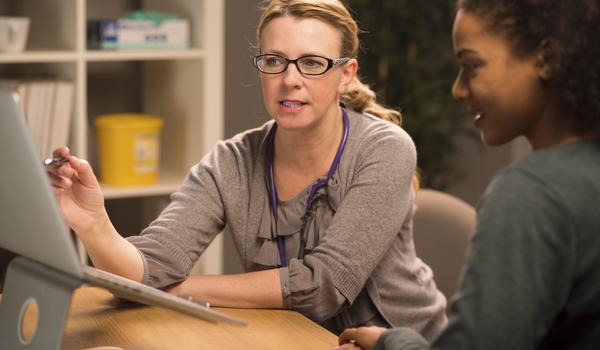Getting the most out of your oncologist

An oncologist is a medical doctor who specialises in cancer treatment. The oncologist has a very important role in the medical team that cares for you.1 Here are a few tips to help you get the most from your consultation.
Here is some general advice
- Prepare for your visit: write a list of questions that you want to ask and take it with you2
- Take notes while you are there: write down the answers to your questions;3 you may want to even bring a tape recorder along to the appointment so you can listen to the conversation again at a later time2
- Ask a friend or family member to come along with you for emotional or moral support; they may also remember to ask things you have forgotten3
- Ask for an interpreter if you do not speak the language3
- A good doctor should repeat information more than once; you can also repeat the oncologist’s words to make sure you understand what you have been told3
- Be honest about all your symptoms, however embarrassing they may be; your oncologist will have seen and heard it all before3
- Do not feel you are wasting the oncologist’s time; ask for more information if you do not understand what has been said. You have the right to understand anything and everything related to your disease and your care3
- Ask for a written summary of what you have been told so that you can read it again later3
- Do not be afraid to speak frankly with the doctor, and even ask difficult questions4,5
- If the oncologist uses terms you are unfamiliar with, ask him or her to explain them3
- Remember, you always have the right to a second opinion4-6
Here are some suggestions for questions you may like to ask
- What is the name of my specific type of cancer?4
- What is the normal outcome (or average prognosis) for others like me?4
- Are you an expert at treating my type of cancer?4
- What treatments are available, and which do you recommend for me?4,7
- Why do you think this treatment is the best for me?4
- What is your goal for my treatment?4
- When will I start treatment?7
- How long will my treatment take?7
- Where will I have to go for treatment, and how often?7
- Will my treatment hurt?4
- What are the success rates for this treatment?7
- If the treatment is successful, what are my chances of the cancer coming back? 4,5
- Will I have any side-effects?4,7
- Is there anything I can do to help prevent or manage side-effects?4
- Will this treatment affect my fertility?4,7
- If I decide not to have treatment, what is my prognosis and what care will I be offered?8
- Are any of my family at risk for this type of cancer?9
- Can I take part in a clinical trial?4,7
- Do you have any information I can take home to read?3
Above all, remember that you are the most important person in the consultation.6 The oncologist is there for you!
Glossary